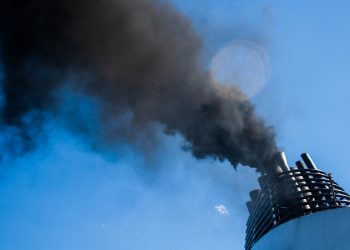The introduction of the 0.50% Global Sulphur Cap is drawing near, and discussions are loud around the availability of compliant fuel and whether implementation will take place in 2020 or 2025. Very little attention is being paid to how it will be enforced. The International Bunker Industry Association (IBIA) and the Trident Alliance share serious concerns about the future enforcement of the Global Sulphur Cap and are now joining forces to work together on this important issue.
“The 0.1% sulphur limit in Emission Control Areas has now been in place for over a year, and still significant gaps in enforcement remain. However, the enforcement challenges of the ECA zones pale in comparison to what authorities will face at the implementation of the Global Sulphur Cap. Given how critical it is for both environment and business, this challenge cannot be shied away from no matter how difficult it may be to resolve”, says Anna Larsson, Chair of the Trident Alliance.
Chairman of IBIA Robin Meech says: “At the moment, it is proposed that the flag states will be responsible for enforcing the global cap. We foresee problems with this approach and believe that there needs to be more clarity about the legal framework and the areas of jurisdiction. IBIA will be working with the Trident Alliance to highlight our points of concern with the regulatory authorities and to find a realistic and enforceable solution for both industry and the environment.”
Peter Hall, CEO of IBIA says: “It makes sense on so many levels to join in partnership with the Trident Alliance. We share concerns about the impact that a lack of enforcement will have on society, the environment and a well-founded marine industry. We also share the view that cost of compliance should not impose an unfair additional burden on one or more sectors.”
IBIA is a forum for all those involved in the purchase, supply and use of marine fuels, representing all the industry players from the wellhead to the engine. IBIA is committed to working with the relevant regulatory authorities to ensure that they understand the pressures on bunker suppliers and users and to help guide the regulatory process where possible.
The two organisations intend to promote full compliance across the industry, which would lead to a cleaner environment and would also ensure that compliant ship operators are not placed at a significant disadvantage to less scrupulous operators using cheaper, higher sulphur bunkers.
“By speaking with a united voice we can press for transparent and robust enforcement of sulphur regulations, which will address those that try to evade the system rather than penalise minor transgressions,” Peter Hall adds.
“Together, both IBIA and the Trident Alliance can reach further and be more effective in our work for robust enforcement of sulphur regulations”, says Anna Larsson.
Both organisations will work to promote a level playing field across the industry with fair and effective control methods which will deliver the environmental improvements that the wider community wants and needs.
Source: IBIA





























































